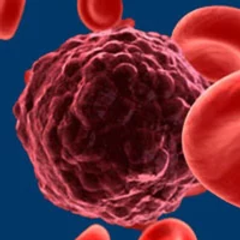
Dr. Shah on Efforts to Combat Resistance to BTK Inhibitors in MCL
Bijal Shah, MD, MS, discusses efforts to combat resistance to BTK inhibitors in patients with mantle cell lymphoma.
Bijal Shah, MD, MS, an associate member of the Department of Malignant Hematology at Moffitt Cancer Center, discusses efforts to combat resistance to BTK inhibitors in patients with mantle cell lymphoma (MCL).
Initially, BTK inhibitors made a significant impact on the MCL treatment paradigm, Shah says. This success resulted in an underlying assumption that there was no need to invest further in the space, as nothing could outperform these agents, which was a huge determent to patients, Shah notes.
The majority of patients with MCL who experience a BTK relapse do not do well, Shah adds. This is because the disease takes on a much more aggressive phenotype after relapse on a BTK inhibitor, and the lymph nodes progress rapidly, Shah explains. Additionally, if a patient has a leukemic variant, they could experience a rapidly increasing white blood cell count that is difficult to manage, according to Shah. This is a very proliferative phenotype, and resistance to BTK inhibitors has been reported very early in patients with MCL, Shah says.
Moreover, progress on combatting this resistance has been slow, Shah notes. However, CAR T-cell therapy could be a feasible option if patients can get through the manufacturing phase, which can be challenging, Shah says. Effective bridging therapies are still needed for this patient population, Shah adds. As such, it is beneficial that agents such as venetoclax (Venclexta) can be utilized, despite the lack of a formal label, Shah concludes.








































